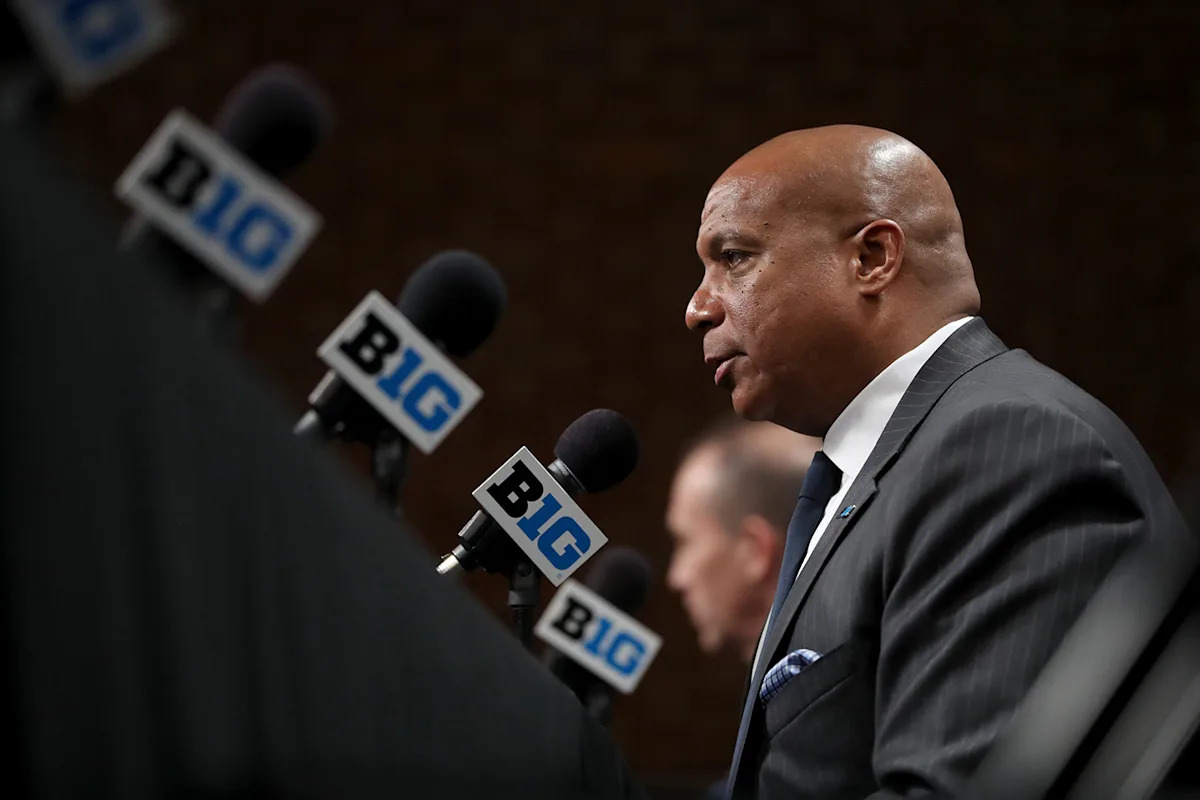BleedGopher
Well-known member
- Joined
- Nov 11, 2008
- Messages
- 63,967
- Reaction score
- 22,655
- Points
- 113
per Yahoo:
Big Ten commissioner Kevin Warren announced the creation of an anti-racism and anti-hate task force on Monday as protests in the wake of George Floyd’s killing continued.
Warren succeeded Jim Delaney as the conference’s commissioner in 2019 and became the first black commissioner to lead any of the Power Five college conferences. He also came to the Big Ten from the Minnesota Vikings.
In an open letter, Warren said that Floyd’s death “cannot be in vain.”

 sports.yahoo.com
sports.yahoo.com
Go Gophers!!
Big Ten commissioner Kevin Warren announced the creation of an anti-racism and anti-hate task force on Monday as protests in the wake of George Floyd’s killing continued.
Warren succeeded Jim Delaney as the conference’s commissioner in 2019 and became the first black commissioner to lead any of the Power Five college conferences. He also came to the Big Ten from the Minnesota Vikings.
In an open letter, Warren said that Floyd’s death “cannot be in vain.”
Big Ten and commissioner Kevin Warren to form anti-racism and anti-hate task force
Warren, who was named Big Ten commissioner in 2019, became the first black Power Five conference commissioner.
Go Gophers!!

